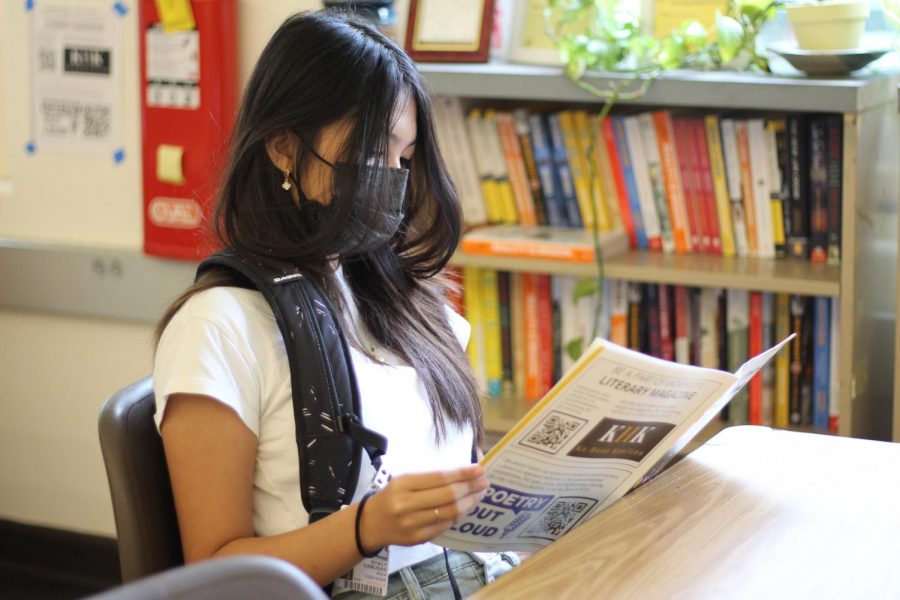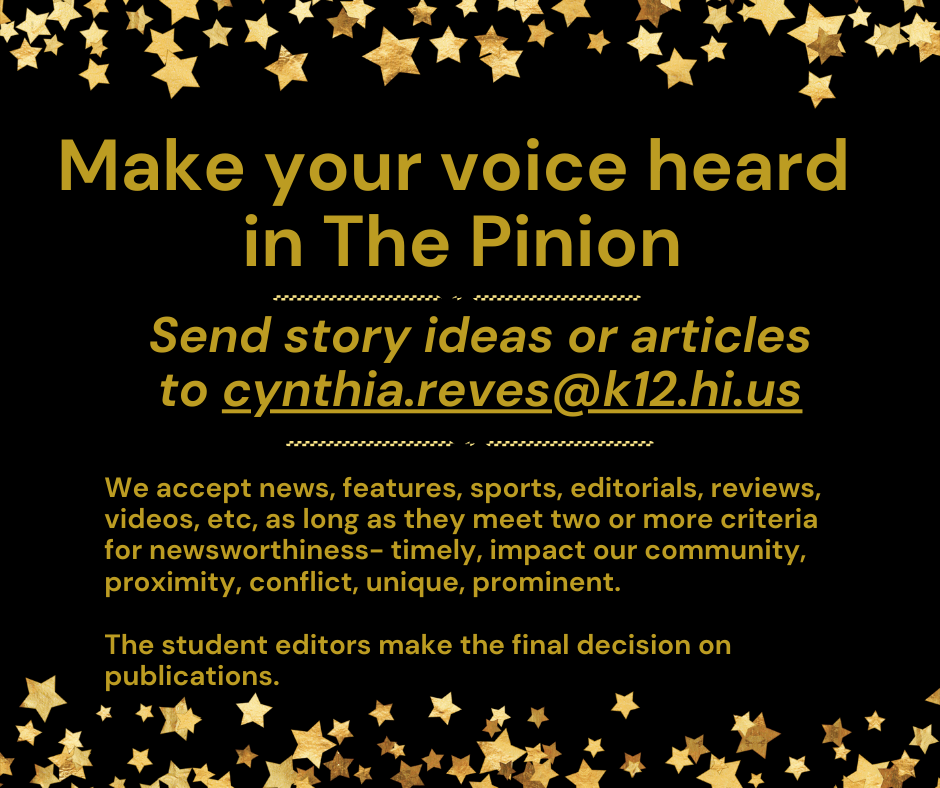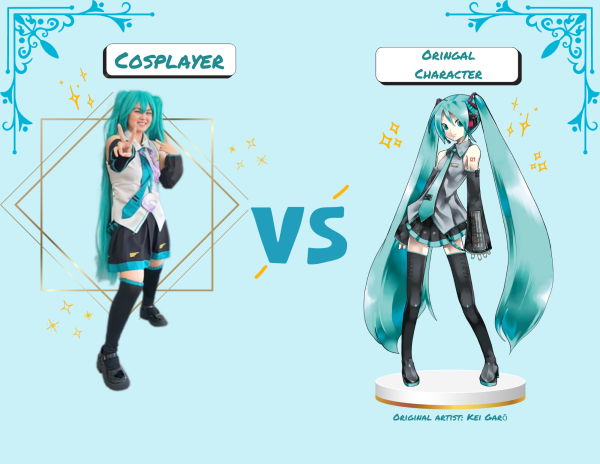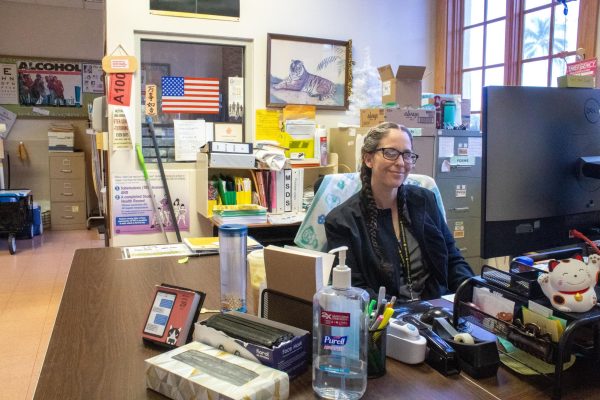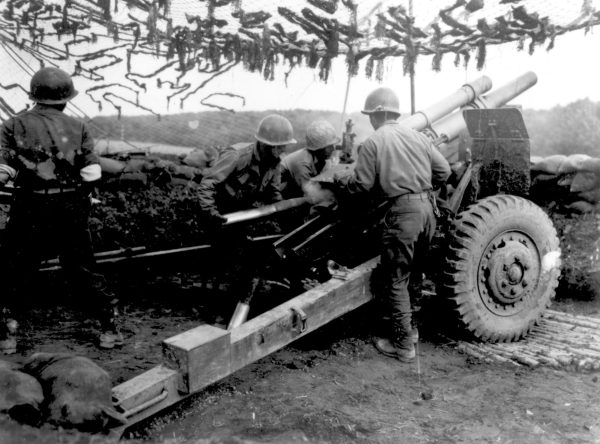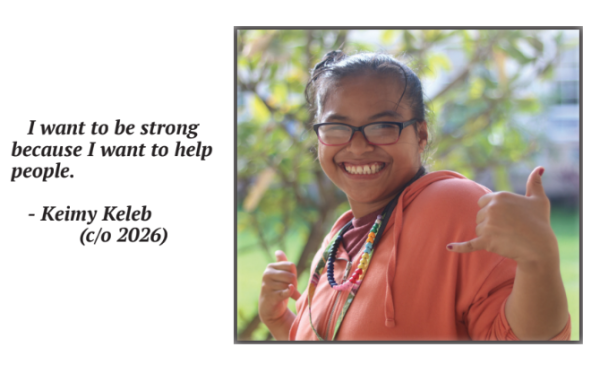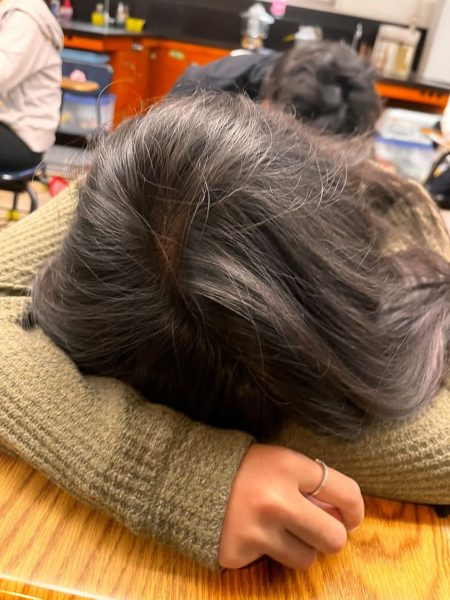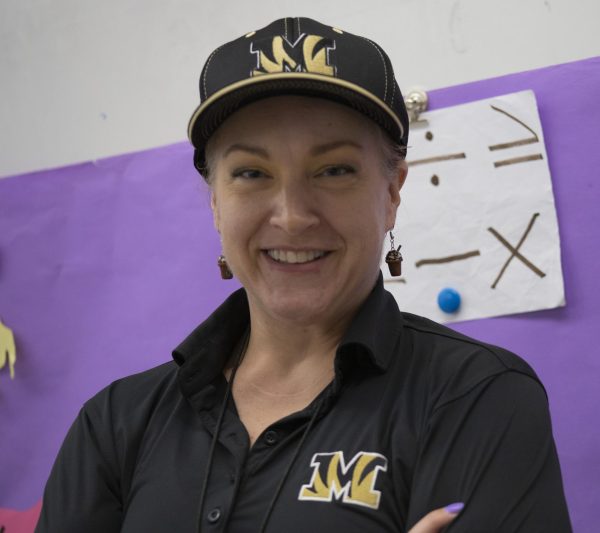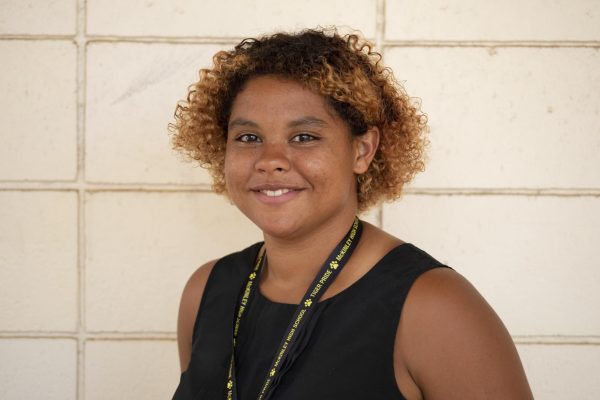Media Literacy
Do you know your news?
Do you trust your news sources? Why is it important to understand sources? What is a news source? Stacy Cabusas is reading the first edition of the 100th volume of The Pinion. Every quarter the Pinion staff and advisor works together to design the print paper.
December 10, 2021
HAWAII HIGH SCHOOL JOURNALISM AWARDS 2022 – Honorable Mention in Video and Multimedia Categories
Today, almost everything has progressed into a digital format. Anyone can play games, chat, attend events, and complete schooling all online. Technology, especially social media, has provided speed and convenience. Even the news, which used to have a prominent physical presence, can be accessed anywhere online.
In a physical paper, the huge current events make the front page of a newspaper. All the important information is at the front, and when you go deeper inside there are editorials, then sports. With the digital format, you have to go to a news source to read a story.
So much of what we’re getting is isolated. Just a story here, and a story there, and sometimes you don’t really know the source or where it came from. — newswriting teacher Cynthia Reves
“So much of what we’re getting is isolated. Just a story here, and a story there, and sometimes you don’t really know the source or where it came from,” said Newswriting teacher Cynthia Reves.
Sources can be people, places, or things that provide information. Unfortunately, not all sources are credible nor ethical. In this day and age, it’s important to know who’s behind the information of the media one consumes.
“It’s almost like with the pandemic, there’s like two Americas,- there’s one side that’s like, COVID is a real threat. COVID is not a real threat. Both of those things can’t be true.” said Reves.
These two different claims that completely go against each other are causing much political drama between friends, and family.
“It’s also very dangerous. What these parents think is also leading to what their kids are doing, and their kids are not wearing masks or aren’t vaccinated. And they put themselves into dangerous situations where they can be exposed to COVID,” said freshman Pinion staffer Athena Matautia.
How does one decide who is telling the truth? Well, Reves usually asks herself who’s behind the news source? Is it a reporter doing their duty by sharing information to the citizens, or is it someone taking something that they believe is true and twisting it so it aligns with their views? Social studies teacher Shaun Kamida believes it’s important to check the facts of people posting on social media, and not blindly believe talk show hosts or podcasts.
“I think one of the biggest issues I have with that or in general that is a controversy is social media. It’s not 100% reliable and it’s not just social media in general,” said Kamida, “ If you only follow random people who are not certified, then you don’t know what if you’re believing what you’re believing, you know.”
Sophomore Shane Kaneshiro is a reporter for The Pinion who believes that his peers should read more in-depth. He says he notices his peers treating articles like social media posts; they only glance at the headline for a second, maybe read a bit of the beginning and then disregard the rest.
“I never see people look at every single page. When I look at old Pinion article archives. I look at them deeply and I try to read every single line,” Kaneshiro says.
Junior Lian Fouse is passionate and usually focuses on technology issues, but he also keeps up with other current events so he can make informed decisions.
“There’s a lot of smaller issues that are still important that I think a lot of students aren’t aware of,” Fouse said, “So, it’s important that everybody’s learning about what’s going on, even if it’s not shoved in front of their face.”
“In my journalism class, maybe the students aren’t going to become media producers. Maybe they’re not going to go into journalism, but they are going to be media consumers, and so they have to be able to read and understand the messages that they’re getting. “ Reves said.



